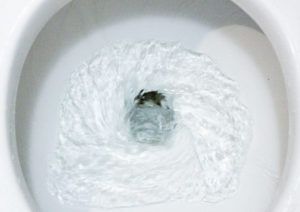When shopping around for drug testing supplies, you may come across a couple of options that include additional testing strips know as “Adulteration Strips”. An Adulterant is defined as a foreign substance used to adulterate, or change, another. When it comes to drug testing, an adulterant would alter the testing sample in such a way as to manipulate the results of a test.
Adulteration strips are additional testing strips that will test the integrity of the specimen provided. They can only be used on urine specimens and are usually sold at a slight up-charge compared to tests without them. Adulteration strips are handy because some people will try to fool a drug test by adding foreign substances to make the test read “negative” when it should really be positive. Adulteration strips may be included on the testing kit itself, or they can be purchased separately. Below is a list of the 6 most common adulterants used to fool drug tests. Each adulterant listed has an adulteration strip available to test for the presence of these adulterants in any urine sample.
Bleach - Bleach is commonly used to cause a false negative for THC. Since bleach is an oxidant that breaks down the metabolites of THC in urine, it will essentially erase the presence of THC in the specimen and result in a negative result. No human urine contains bleach, so having this adulteration strip will be an easy way to detect an invalid sample.
Creatine - Creatine is a common adulterant used to alter the results of a drug test. While produced in the body naturally, creatine is also present in diuretics used in the herbal flush to clean the body from drugs. This strips measure the waste product from creatine and will notify you if there is an excess of creatine metabolites present in the sample.
Glutaraldehyde - Glutaraldehyde is a disinfectant used in medical settings for sterilization for equipment. Although it has a strong odor, this adulterant is colorless and when used in small amounts can alter the enzymes used for the detection of drugs in the testing supplies which will cause a false negative. Since is not present in human urine, it is easy to detect when this adulteration strip is present.
Nitrite - Another common combatant for fooling a test for THC, Nitrate adulterants are used to oxidize the testing sample and essentially make the THC metabolites undetectable. Normal urine should not contain any levels of nitrates.
pH Level - Including an adulteration strip that tests the pH level of the sample will help detect the presence of other adulterants that alter the alkaline or acidic values outside of what is considered the normal range for human urine. A sample that flags this adulteration strip can be considered invalid and that the sample could be tampered.
Specific Gravity - Some people will simply add water to the sample to dilute the concentration of drug metabolites. This will in turn trigger a negative result. Specific Gravity adulteration strips will test sample dilution and notify the individual administering the test if water has been added to the sample.
Adulteration strips are relatively inexpensive when taken into account the amount of value they add to a drug test. The strips can be purchased separately and used at the discretion of the test administrator. It is also common to purchase urine testing supplies that include the adulteration strips within the test. Either way, adulteration strips will help keep the sample donor honest and the results of the test reliable.

